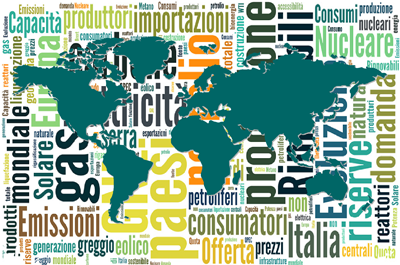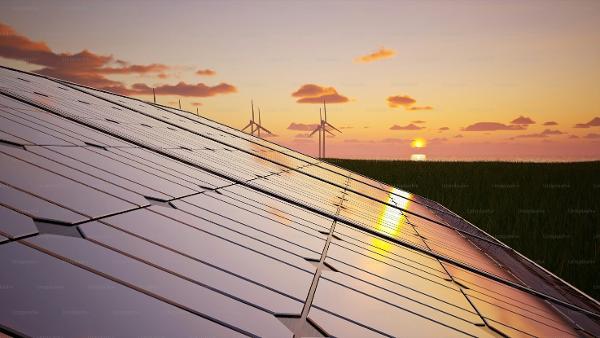As G20 leaders head to the Delhi Summit this week, a recent study by the International Institute for Sustainable Development (IISD) and its partners showed that the bloc allocated a record USD 1.4 trillion of public funds to support fossil fuels in 2022. This figure—which includes fossil fuel subsidies (USD 1 trillion), investments by state-owned enterprises (USD 322 billion), and lending from public financial institutions (USD 50 billion)—is a stark reminder of the substantial sums of public money that G20 governments continue to channel into fossil fuels, despite their well-known dangers and the related destructive effects of climate change.
Yet, there has been almost no meaningful discussion of public support to fossil fuels in official government working groups in the run-up to this year’s G20 talks, which are set to conclude with the Leaders' Summit this weekend. This raises serious doubts on the implementation of the long-overdue G20 commitment to phase out inefficient fossil fuel subsidies. In Delhi, G20 leaders must ensure not only that the final communique reiterates the commitment, but also adopts a clearer language and sets a timeline for reform.
Such public support is problematic because it artificially lowers the price of fossil fuels, increasing the burning of coal, oil, and gas, intensifying human-induced climate change, and making extreme weather events—like heat waves, wildfires, torrential rains, and hailstones—more frequent and intense.
G20 governments have recognized the issue of fossil fuel subsidies for over a decade. Back in 2009, countries committed to "phase out and rationalize inefficient fossil fuel subsidies over the medium-term while providing targeted support for the poorest." However, despite some major national policy reforms in the last decade, the overall support provided by the G20 has not followed a clear downward trend, despite the group’s annual reiteration of its commitment.
The main barrier to reform has been national-level economic and political challenges, which have been particularly demanding during the past four years of economic crises. In 2022 alone, nearly USD 1 trillion was allocated to consumer subsidies, with several economies prompted to introduce additional support to ensure affordable energy access for households after global energy prices spiked in the wake of Russia’s invasion of Ukraine.
But evidence shows that such support for fossil energy often fails to efficiently benefit the most vulnerable populations. A 2015 review of fuel subsidies in 32 countries revealed that, on average, the top 20 percent of wealthiest households receive at least six times more benefits than the bottom 20 percent. This means that wealthier households, already capable of affording more energy, receive a disproportionately greater share of subsidy benefits. Shifting support from fuels to people is therefore fundamental for phasing out subsidies in a socially responsible way.
The global energy supply crisis may appear as an isolated event, but it foreshadows a future of increasing price volatility linked to fossil fuels. Consequently, countries need efficient social protection systems capable of swiftly delivering benefits to vulnerable groups. These systems are not only essential for achieving Sustainable Development Goal (SDG) 1 to end poverty but are also fundamental for simultaneously meeting targets to provide affordable energy access for all (SDG 7) and reform fossil fuel subsidies (SDG 12). Establishing fully operational social protection mechanisms is a critical prerequisite before initiating any consumer subsidy reforms.
G20 member states should therefore allocate a portion of their savings from subsidy reform to enhance social protection and increase public support for clean energy. This reflects the pressing need for non-subsidy mechanisms to assist populations during periods of energy and cost-of-living crises. Additionally, it emphasizes the urgency of attracting private investment for a rapid and socially responsible expansion of clean energy capacity by 2030.
How to ensure international commitments lead to successful implementation
The G20's commitment to fossil fuel subsidy reform is not unique; this language has been embraced globally, reflecting the G20's influential role. Nearly all countries adopted similar wording on fossil fuel subsidies in 2015 under Sustainable Development Goal (SDG) 12.c.1, and the Paris Agreement under Article 2.1 commits to aligning financial flows with greenhouse gas emissions reduction. More recently, commitments to "phase out inefficient fossil fuel subsidies while providing targeted support to the poorest" were reiterated in the cover decisions of the United Nations Framework Convention on Climate Change (UNFCCC) Conference of the Parties (COP) 26 and 27.
Frustratingly, despite these increasing international commitments, total public financial support for fossil fuels has grown. While subsidies form a significant part of this financial backing, governments should aim to shift all public financial flows because they influence the flow of much larger private investments.
For instance, G20 energy SOEs annually invest billions in new fossil energy infrastructure, locking-in new fossil fuel production, increasing greenhouse gas emissions, and worsening environmental pollution. While some of them receive substantial government support, a lack of transparency shrouds these financial flows.
The leaders should expand their fossil fuel subsidy reform pledge to include all public support for fossil fuels. This would include mandates for state-owned energy and financial institutions to create strategies to contribute to net-zero targets, particularly on ways to redirect financial flows to cleaner energy sources.
With the Delhi summit on the horizon, G20 leaders possess a crucial role in driving reform and demonstrating to the global community that commitments must be backed by concrete action. As Chair, India in particular can demonstrate leadership on this issue, having reduced its own fossil-fuel subsidies by over 70% since 2014. The Leader’s communique can push harder on implementation by establishing a clear timeline for reform and commit to annual reporting on public support for all fossil fuels, in line with SDG 12.c.1.
The G20's significant financial support for fossil fuels, in the face of climate change's dire consequences, remains a pressing global concern. The time has come for the G20 to translate its longstanding commitment into meaningful action, ensuring that the transition away from fossil fuel subsidies is both swift and socially responsible.




















